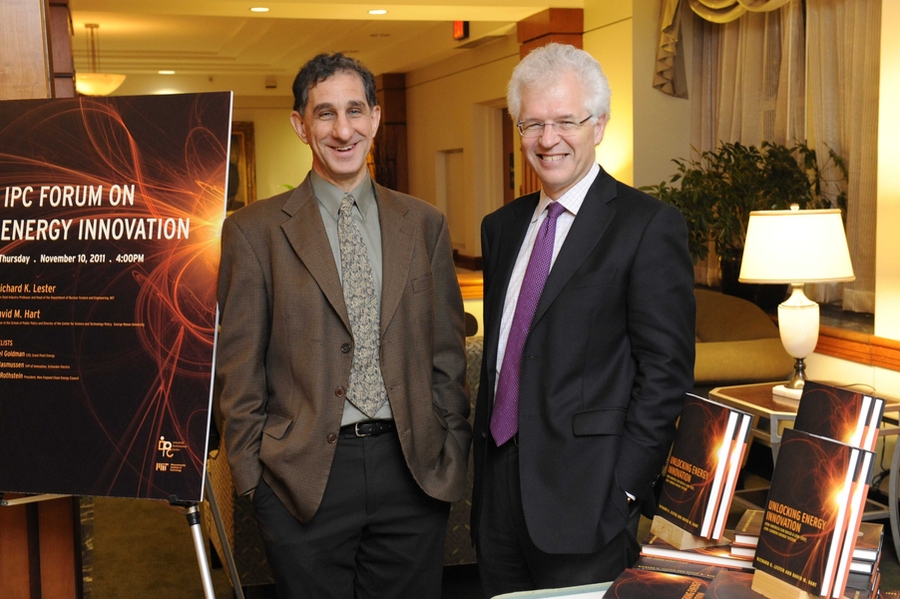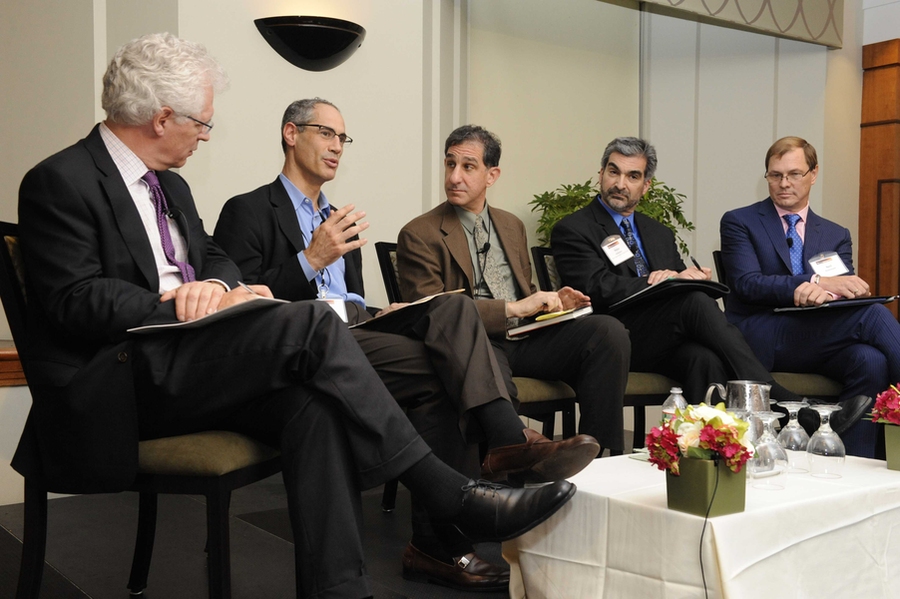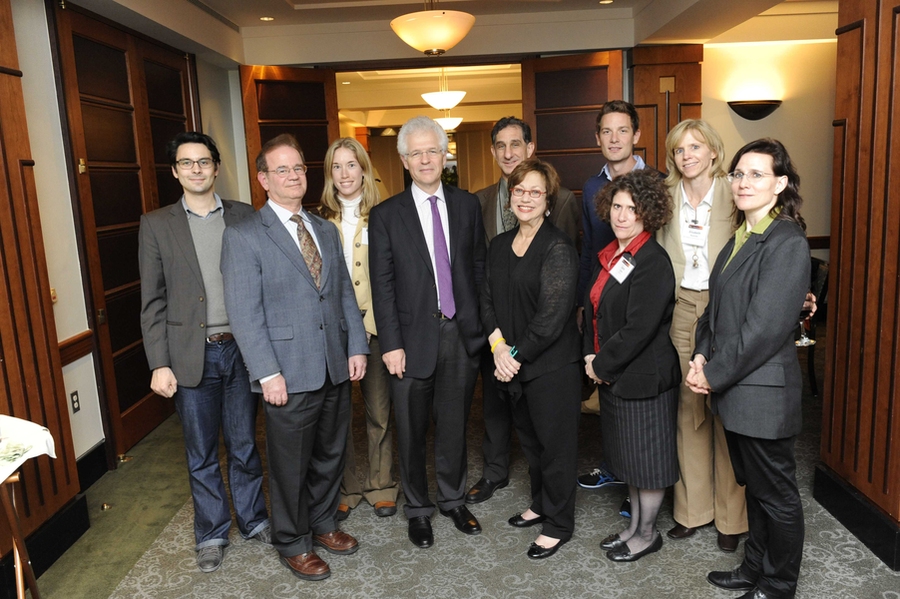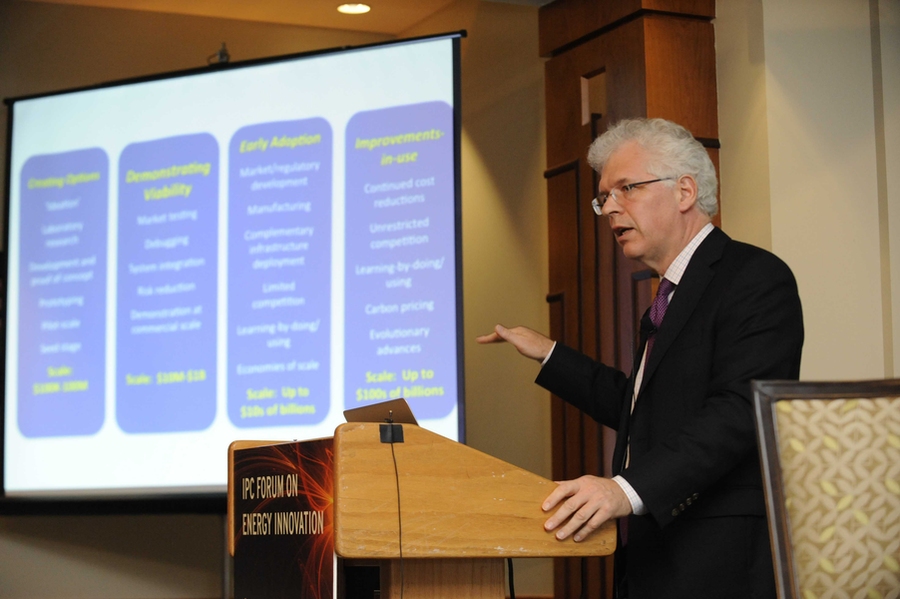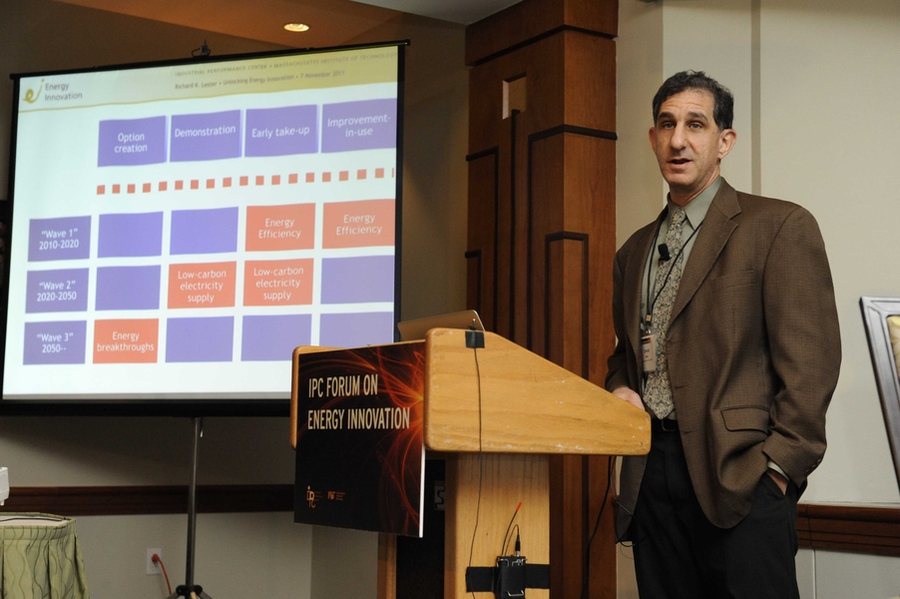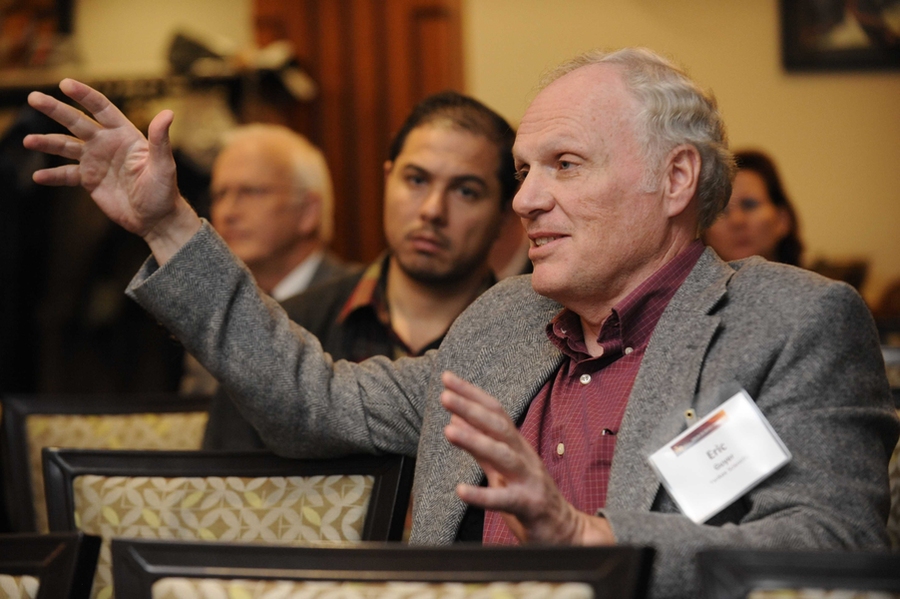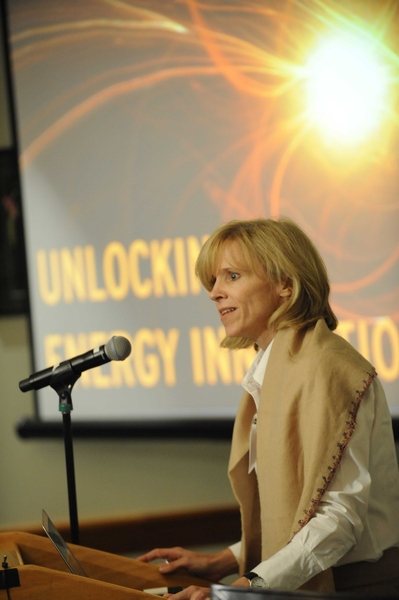Energy is the lifeblood of the industrialized world, providing light, heat, transport and thousands of vital benefits. But energy dependence also creates a complex collection of challenges, including carbon emissions that are tightly linked to climate change, oil spills, nuclear accidents, economic pressures and regional and global political tensions.
The result: an unsustainable situation, with deeply intertwined environmental, economic and political consequences for the United States and the world.
On Nov. 10, MIT’s Industrial Performance Center (IPC) hosted a Forum on Energy Innovation, discussing the results of an interdisciplinary three-year project aimed at creating strategies for clean, affordable, reliable energy supplies in the 21st Century.
The IPC’s Energy Innovation Project engaged scientists, engineers and social scientists from across and outside the Institute, and has produced a new book, Unlocking Energy Innovation, that reviews the entire U.S. energy production and consumption chain, and offers new proposals for spurring ongoing, systemic innovation to boost efficiency and make low-carbon energy technologies effective and economical.
‘The Energy Innovation Project, and our book, paint a clear picture,” stated co-author Richard Lester, IPC co-chair and head of MIT’s Department of Nuclear Science and Engineering. “We face a very big innovation challenge over the next few decades — bigger, perhaps, than most people realize. While parts of the U.S. energy innovation system are working well, the system as a whole is not up to the task of delivering hundreds of billions of dollars of mostly private investment into cost-competitive, scalable and environmentally benign new technologies; making thousands of new sites available for often-controversial energy facilities and infrastructure; and training tens of thousands of young people annually, from craft workers to PhD scientists."
Read full article
The result: an unsustainable situation, with deeply intertwined environmental, economic and political consequences for the United States and the world.
On Nov. 10, MIT’s Industrial Performance Center (IPC) hosted a Forum on Energy Innovation, discussing the results of an interdisciplinary three-year project aimed at creating strategies for clean, affordable, reliable energy supplies in the 21st Century.
The IPC’s Energy Innovation Project engaged scientists, engineers and social scientists from across and outside the Institute, and has produced a new book, Unlocking Energy Innovation, that reviews the entire U.S. energy production and consumption chain, and offers new proposals for spurring ongoing, systemic innovation to boost efficiency and make low-carbon energy technologies effective and economical.
‘The Energy Innovation Project, and our book, paint a clear picture,” stated co-author Richard Lester, IPC co-chair and head of MIT’s Department of Nuclear Science and Engineering. “We face a very big innovation challenge over the next few decades — bigger, perhaps, than most people realize. While parts of the U.S. energy innovation system are working well, the system as a whole is not up to the task of delivering hundreds of billions of dollars of mostly private investment into cost-competitive, scalable and environmentally benign new technologies; making thousands of new sites available for often-controversial energy facilities and infrastructure; and training tens of thousands of young people annually, from craft workers to PhD scientists."
Read full article
